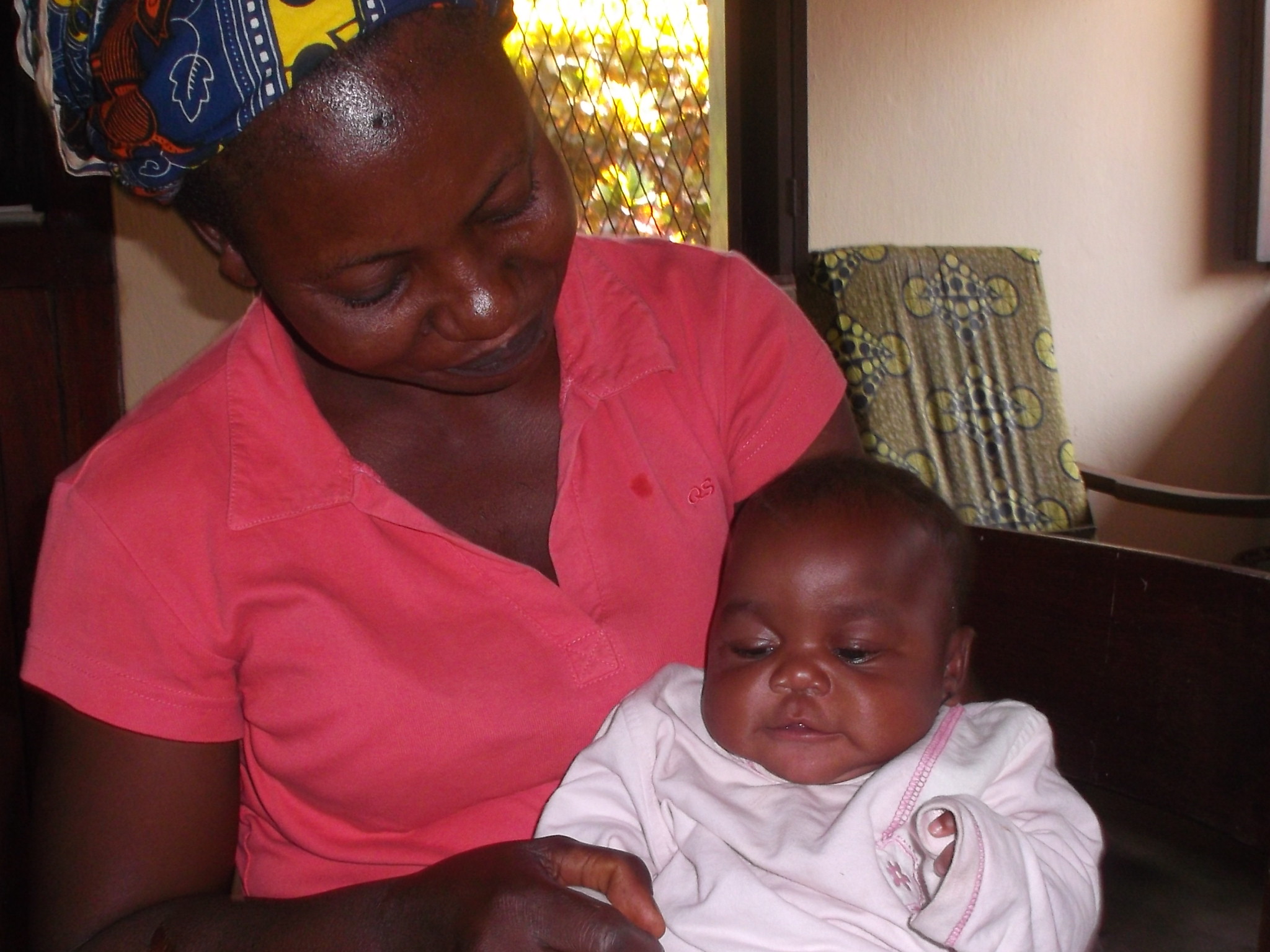
Wonder of God is the name of our smallest protected, was born with 1.400kg, orphan, her mother died after giving birth. Her Grandma came to ask for support to the Mission during one of my visits to Bangui. As Mongoumba has no milk for babies in the hospital she was sent to the Nutrition Unit, where she was fed with adapted milk for malnourished children, for fifteen days; began to gain weight, but Grandma was eager to leave, one day went to the camp and did not return, leaving the little to the care of unit staff …
As soon as I returned to Mongoumba the first question that was put to me was “What to do with the baby? It can not and should not continue in the hospital!” The whole family had gone to the forest and with no family is impossible to carry the baby to the Sisters of Charity of Mbaiki, they will not accept it. In the Community started thinking about the possibility of seeking someone who could take care of the orphan and that someone was very close. One of the aides’ staff of the unit had said she did not mind staying with the girl, the only problem would be extra expenses since she is a widow with small children and unsupported. We talked and agreed that she would take care of the baby and the Mission would pay the cost of food and clothing. The Wonder also called Elisabete has adopted mother! Now she have six months, it is big and beautiful! These are the small, large, wonders of God that encourage us to continue to serve the mission.
With friendship
Élia Gomes CLM in Mongoumba




